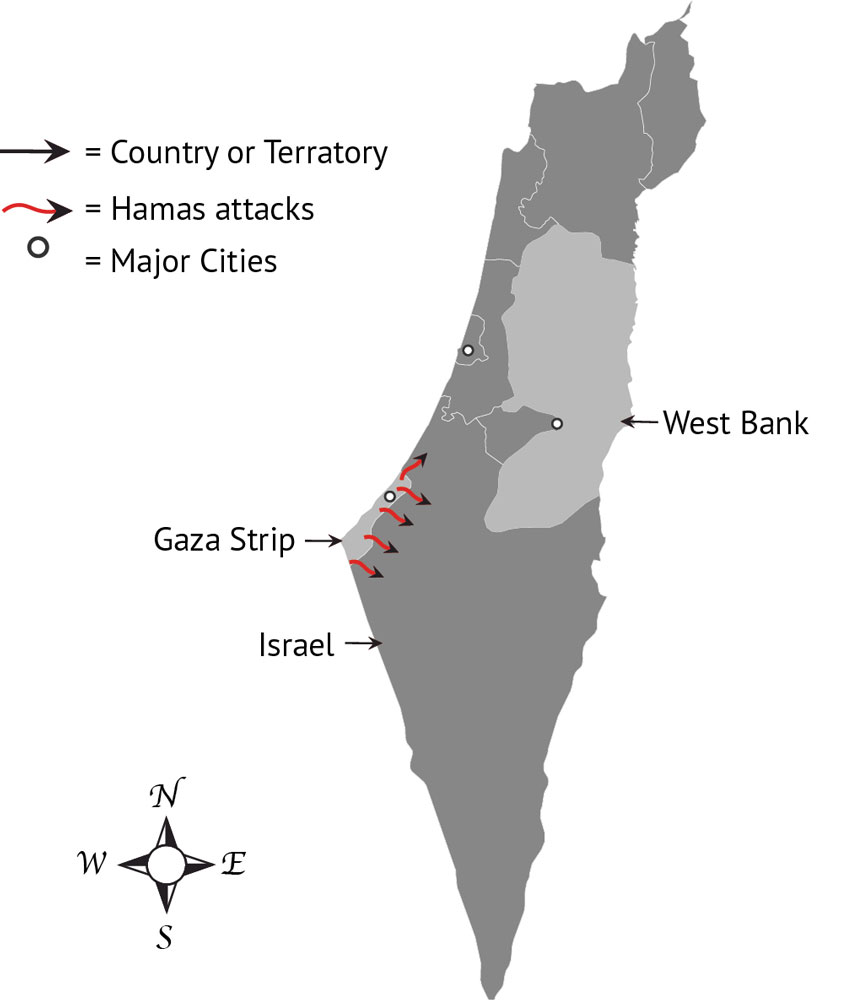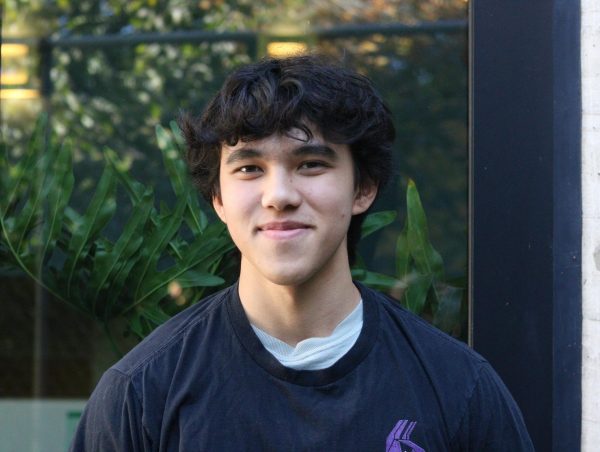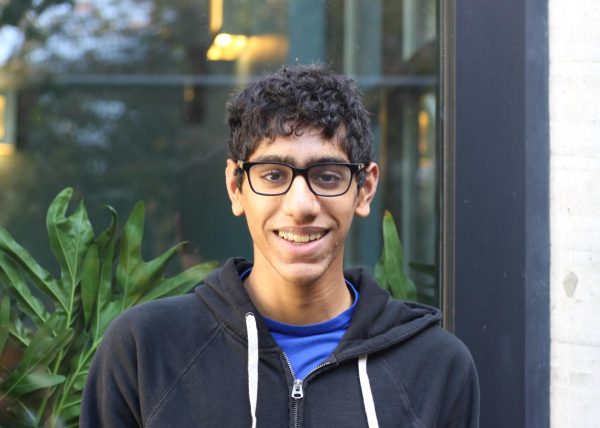Five weeks after Hamas launched terrorist attacks on Israel, the current death toll is 10,000 Gazans according to the Hamas-run Gaza health ministry, and about 1,400 Israelis according to the Israeli government as of press time on Nov. 9. Some 240 Israelis were also kidnapped during the Oct. 7 attacks. While Israel and Gaza are 6,800 miles away from Seattle, the conflict has impacted University Prep’s Jewish and Muslim communities.
Junior Galia Harmelin lived in Israel for eight years and is very connected to the country.
“My family in Israel are very disturbed,” Harmelin said. “I feel kind of guilty for not being there for them, but I also am kind of thankful I am here with my family and safe.”
Junior Leah Bloom also has family and friends in Israel. Her cousin is currently on the front lines of Gaza working as a medic.
“Some of my friends there know people who have been kidnapped or killed,” Bloom said. “I think everyone there is being affected. Even if they’re not physically affected, everyone knows someone who is.”
In July, Bloom visited the country on a group tour.
“It’s hard to think about…I visited one of the kibbutzim that was right on the border of Gaza,” Bloom said. “Fifteen people got taken and killed from there.”
Because of Israel’s mandatory military service for those aged 18-21, some students, such as Harmelin, also have family and friends serving in Israel’s army.
“One of my cousins went home to visit, and while she was on vacation, her military base was attacked. Thankfully she wasn’t there during that time. But just the possibility is absolutely devastating,” Harmelin said.
The Puma Press was unable to find any UPrep students or faculty with family living in Palestinian territories. However, many Muslim students, such as Senior Kian Baghai, still feel connected to the issue due to their faith.
“I feel it has become religiously motivated,” Baghai said. “So a lot of Muslims are supporting Palestinians, and a lot of the Jewish people are obviously supporting Israel. And so in that regard, I feel like I have just become connected to the Palestinian fight.”
Baghai feels that it is unfortunate the issue has separated Jewish and Muslim communities.
“I think it’s really a human rights issue. And an issue between [Hamas and Israel],” Baghai said. “I have a lot of Jewish friends that I really don’t want to be pitted against just because of my identity…People need to make sure they’re not making generalizations based on people’s identities.”

Sophomore Umu Abdilahi, who is also Muslim, emphasizes the importance of empathy toward the Palestinian people regardless of personal identity.
“You don’t need to have a connection with the Palestinian people to support them. All you have to be is human,” Abdilahi said.
Both Muslim and Jewish students have held spaces for members of the UPrep community to unpack the conflict.
On Oct. 12, seniors Jeremy Bollag and Ellie Assadi, who are both Jewish, held a meeting for students to discuss the issue.
“The main intention of it was just to create a space where people could come and talk about things that have been on their chest, or to learn more about what’s going on or to ask any questions,” Bollag said.
Bollag and Assadi spent the week following the attack working with Upper School Director Susie Wu and Taylor Kanemori, Director of Diversity, Equity, Inclusion, and Belonging, to provide a space for discussion.
“We made a difference in a way that we could. I’m proud of that,” Bollag said.
The Muslim Student Association held a space for discussion the following week on Oct. 17. Junior Muhamed Abdilahi helped organize the meeting with the aim of educating anyone who wanted to learn about the conflict.
“We wanted to address the situation going on in Palestine,” Abdilahi said. “We talked about how certain events are kind of overlooked by the media.”
The administration recognized the conflict by sending multiple messages to the UPrep community. Head of School Ronnie Codrington-Cazeau and Wu both sent out all-school emails, as well as emails specifically addressed to faculty and parents. Wu said she also sent individual messages to Muslim and Jewish students.
Addressing the conflict while not inadvertently leaning toward either political side has been challenging for Wu.
“I’m following how different schools and colleges are responding or not responding, and it seems like everybody’s in a very similar boat, where it’s like, you say one thing, and it’s really hard to be seen as pro-Israel and pro-Palestinian,” Wu said.
As the community has navigated the conflict, students and administration alike have stressed the importance of staying educated on the issue.
“There’s this whole thing about scrolling through social media and seeing just flash news, and things like that may or may not represent what’s going on,” Harmelin said. “So educate yourself beyond the reels that you see on Instagram.”
Wu stated how UPrep’s community can support those more impacted by the conflict.
“It’s our own responsibility to really try to understand at a deeper level some of the current events that are happening that impact all of us,” Wu said. “So that we are better human beings—better citizens.”
Wu stated how UPrep’s community can support those more impacted by the conflict.
“It’s our own responsibility to really try to understand at a deeper level some of the current events that are happening that impact all of us so that we are better human beings—better citizens.”



